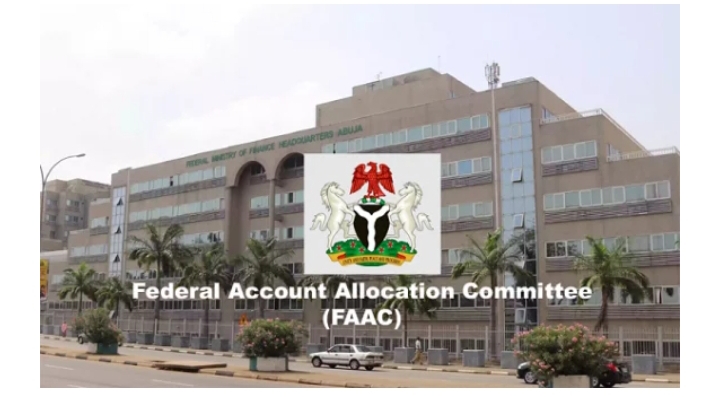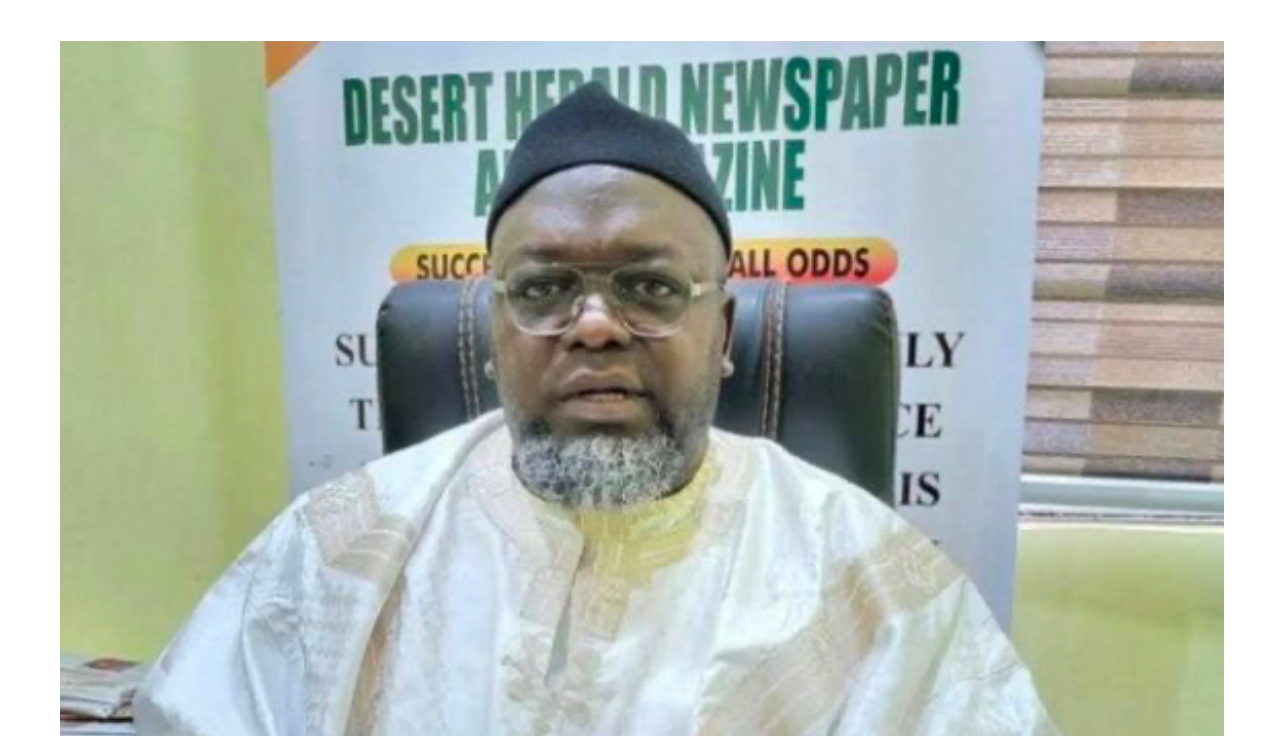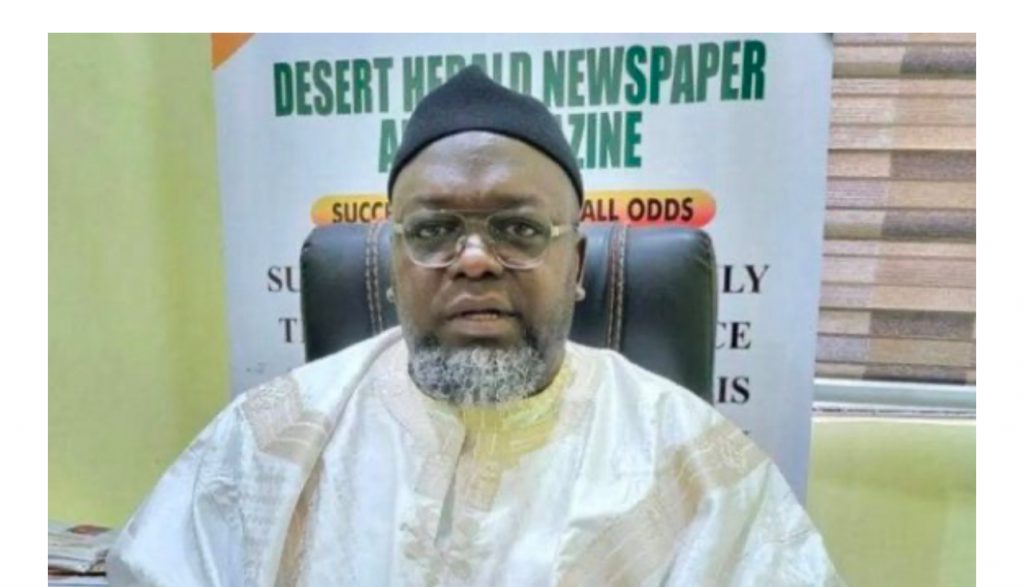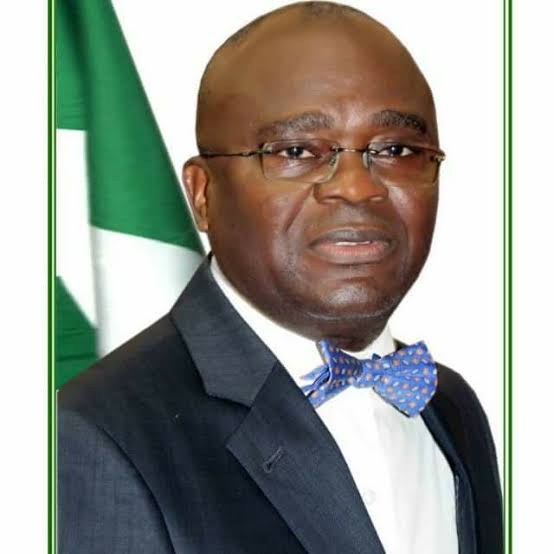news
Breaking : Federation Accounts Allocation, FG, States and local councils share N1.203tr for August 2024

 The Federation Accounts Allocation Committee (FAAC) has announced the disbursement of N1.203 trillion in revenue for August 2024 to the Federal Government, State Governments, and Local Government Councils.
The Federation Accounts Allocation Committee (FAAC) has announced the disbursement of N1.203 trillion in revenue for August 2024 to the Federal Government, State Governments, and Local Government Councils.
The announcement was contained in a communiqué after the FAAC’s September 2024 meeting in Abuja.
The total distributable revenue of N1.203 trillion comprises several sources, reflecting the government’s diverse revenue streams.
This amount includes distributable statutory revenue of N186.636 billion, distributable Value Added Tax (VAT) revenue of N533.895 billion, Electronic Money Transfer Levy (EMTL) revenue of N15.017 billion and Exchange Difference revenue of N468.245 billion.
These figures reflect the government’s continued reliance on multiple channels to generate public funds, although some sources showed a decrease from the previous month.
The FAAC communiqué also reported that the total revenue available for distribution in August 2024 was N2.278 trillion.
However, the actual distributable amount was reduced following deductions for cost of collection, which stood at N81.975 billion as well as transfers, interventions, and refunds amounting to N992.617 billion.
These deductions indicate the costs incurred by various government agencies in collecting the revenue as well as amounts transferred for specific interventions or refunds during the month.
FAAC shares N1.143tr among tiers of govt
The gross statutory revenue collected for August 2024 amounted to N1.221 trillion, representing a decrease of N165.994 billion compared to July 2024 when the statutory revenue was N1.387 trillion.
Similarly, the gross revenue from VAT for August was N573.341 billion, down by N51.988 billion from the N625.329 billion recorded in July. These declines highlight the volatility in some of the major revenue sources, particularly as they relate to domestic consumption and taxation.
From the N1.203 trillion total distributable revenue, the Federal Government, State Governments, and Local Government Councils received allocations. The Federal Government received N374.925 billion, the State Governments received N422.861 billion, and the Local Government Councils received N306.533 billion. In addition, a total sum of N99.474 billion, which represents 13% of mineral revenue, was shared to the oil-producing states as derivation revenue.
Of the N186.636 billion distributable statutory revenue, the Federal Government received N71.624 billion, while the State Governments received N36.329 billion, and the Local Government Councils received N28.008 billion. Furthermore, N50.675 billion was allocated to oil-producing states as derivation revenue from this statutory distribution.
From the N533.895 billion VAT revenue, the Federal Government received N80.084 billion, while the State Governments and Local Government Councils received N266.948 billion and N186.863 billion respectively.
In terms of the N15.017 billion generated from the Electronic Money Transfer Levy (EMTL), the Federal Government received N2.252 billion, while the State Governments received N7.509 billion, and the Local Government Councils received N5.256 billion.
The N468.245 billion from Exchange Difference revenue was distributed with the Federal Government receiving N220.964 billion, the State Governments receiving N112.076 billion, and the Local Government Councils receiving N86.406 billion. In addition, oil-producing states were allocated N48.799 billion from this revenue as derivation.
news
JUST IN: Court Rejects “Terrorists’ Negotiator” Tukur Mamu’s Third Bail Application


A Federal High Court in Abuja has rejected a fresh application for bail filed by detained alleged terrorists negotiator, Tukur Mohammed Mamu.
Justice Mohammed Umar, in a ruling on Wednesday, noted the health complaint by Mamu and held that the detaining authority, the Department of State Services (DSS) should not release him but take him to an appropriate health facility where he would be adequately attended to.
Justice Umar noted that, by the history of the case so far, the prosecution has exhibited diligence in it handling of the case and exhibited diligence in prosecuting the case.
The judge said one of the reasons for granting bail is where the prosecution is not diligent, noting that since the prosecution in this case is diligent, the application for bail cannot be granted.
He subsequently ordered that the defence lawyer should choose the health facility comfortable to the defendant, to which he should be promptly taken.
He also asked the DSS to allow the defendant access to members of his family.
The ruling on Wednesday is the third time the court will reject his application for bail since his was arraigned on March 21, 2023 by the Federal Government on a 10-count charge bordering on terrorism financing, among others.
Mamu was arrested on September 7, 2022 by Egyptian security officials at the Cairo International Airport, on reasonable suspicion of financing Boko Haram terrorism activities.
He was alleged to have convinced the terrorists to discuss ransom payments with individual families of the hostages of the train attack instead of the Chief of Defense Staff Committee set up by the Federal Government for his personal financial gain.
He was said to have been nominated by the terrorists that attacked the Abuja-Kaduna bound train sometime in March 2022 which took scores of persons hostage.
Mamu was alleged to have collected ransoms on behalf of the Boko Haram terrorists from families of hostages, confirmed the amount and facilitated the delivery of same to the terrorists.
news
BREAKING: ASUU suspends two-week warning strike


The Academic Staff Union of Universities has announced the suspension of its ongoing two-week warning strike.
The National President of ASUU, Prof. Chris Piwuna, made this known in an ongoing press briefing in Abuja on Wednesday.
According to Piwuna, the decision stemmed from the meeting of the National Executive Council meeting which was held overnight and ended by 4:00 am on Wednesday.
Piwuna noted that the union decided to embark on the strike due to the failure of the government to meet its demands on time.
“We’ve had useful engagements with representatives of the government to consider the response to the draft renegotiation of the 2009 agreements. However, we are definitely not where we were prior to the commencement of the strike.
news
Update : police tracks down mastermind of railway vandalism, recovers load of stolen Materials in Plateau, Says Opeifa


The Nigerian Railway Corporation (NRC) had a major breakthrough recently it its efforts to apprehend the vandals of its critical assets across the country.
Towards this end, the Corporation’s police Command has arrested one Musa Abdullahi, aka Major aged 32, a notorious receiver and kingpin of vandalized railway materials, in Kaduna.
The arrest was a major success recorded by the Corporation in its campaign against the vandalisation and theft of railway materials, just as it intercepted a trailer loaded with railway components In plateau State.
In Kaduna, operatives of the Nigerian Police, Railway Command, arrested the suspect around the Rigasa area.
His arrest followed intelligence reports on the vandalism of electrical installations along the Mando–Rigasa corridor on Tuesday,14th October 2025.
Investigation is ongoing, and the case will be charged to court on conclusion.
In Plateau State, operatives of the Nigeria Police, Railway Command, intercepted trailer conveying large quantities of railway materials along KM 822–823, Foromaxis, in the early hours of Tuesday, 14th October 2025.
The truck, which was abandoned by its driver who fled the scene, was successfully towed to the Jos Railway Police Station on Wednesday, 15th October 2025.
Investigation is on going to uncover and apprehend all individuals connected to the theft.
The Managing Director of the NRC, Dr. Kayode Opeifa, commended the Nigeria Police for their professionalism, intelligence-led operation, and swift action in handling both incidents.
He described the arrests and recovery as clear evidence of the renewed synergy between the Corporation and security agencies in protecting critical railway infrastructure across the country.
Dr. Opeifa reaffirmed the Corporation’s resolve to strengthen collaboration with the Nigeria Police, the Nigeria Security and Civil Defence Corps (NSCDC), and other security formations to ensure that vandals, receivers, and collaborators are brought to justice.
He emphasized that such criminal acts amount to economic sabotage, warning that the NRC Management will continue to pursue zero tolerance for vandalism through enhanced surveillance, community engagement,and intelligence sharing.
Opeifa further appealed to residents of communities hosting railway facilities to remain vigilant and promptly report any suspicious movement around rail installations.
He noted that the railway system remains a major driver of national development and urged the public to view its protection as a shared responsibility.
-

 news5 years ago
news5 years agoUPDATE: #ENDSARS: CCTV footage of Lekki shootings intact – Says Sanwo – Olu
-

 lifestyle5 years ago
lifestyle5 years agoFormer Miss World: Mixed reactions trail Agbani Darego’s looks
-

 health5 years ago
health5 years agoChairman Agege LG, Ganiyu Egunjobi Receives Covid-19 Vaccines
-

 lifestyle4 years ago
lifestyle4 years agoObateru: Celebrating a Quintessential PR Man at 60
-

 health5 years ago
health5 years agoUPDATE : Nigeria Records 790 new cases of COVID-19
-

 health5 years ago
health5 years agoBREAKING: Nigeria confirms 663 new cases of COVID-19
-

 entertainment9 months ago
entertainment9 months agoAshny Set for Valentine Special and new Album ‘ Femme Fatale’
-

 news5 months ago
news5 months agoBREAKING: Tinubu swears in new NNPCL Board


